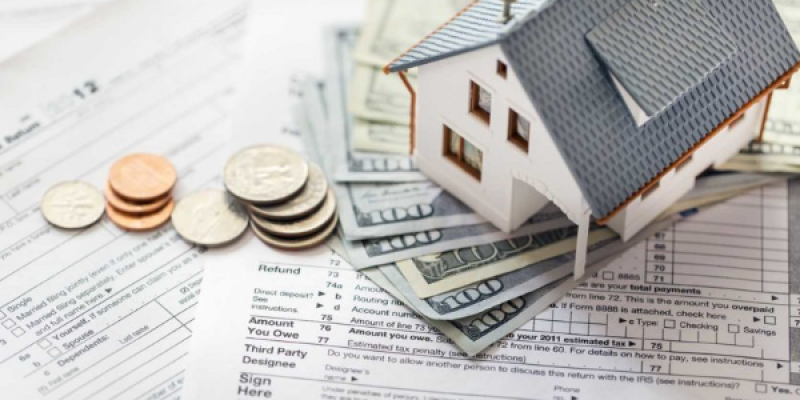The new property tax law going into effect next year in Texas requires residents to vote on any property tax increases imposed that are higher than 3.5 percent in cities and counties with a population of 30,000 or more.
The bill, SB2, was spearhead by Sen. Paul Bettencourt, R-Houston, and received support from Republican Gov. Greg Abbott.
Up until 2020, cities and counties have been able to increase property taxes by up to 8 percent without voter approval.
The new law also limits tax increases for school districts by 2.5 percent without voter approval, and excludes growth, or new tax revenue from new properties added to the tax rolls.
“This important change will help protect people’s tax relief from getting eaten up by appraisal gains,” James Quintero at the Texas Public Policy Foundation says. “The old, clunky petition process was also replaced with an automatic election requirement, meaning that local officials will now have to explain the need for big tax increases.”
But officials point out that the appraisal process is exactly why taxes will continue to increase despite the capped tax rates.
“A reduction in the tax rate can still mean a tax increase,” Shelby Williams, Plano City Council member, said, because cities and counties adjust appraisal rates.
If appraisal values rise, a taxing entity can keep the same tax rate as the previous year, or even reduce the tax rate, and still collect the same or more property tax revenue than the previous year.
According to data from the Dallas Appraisal District, from 2013 to 2018, the average city property tax bill for homeowners increased by more than 43 percent, from $1,100 to $1,580. The City Council lowering the tax rate over that five-year period didn’t actually offset rising property taxes for Dallas homeowners.
This month, the Dallas City Council proposed raising the average city property tax rate for homeowners by 9.5 percent over last year’s rate, which requires voter approval. The council plans to vote on increasing property taxes by more than $83 million on Sept. 18.
About 28.6 percent of taxes paid by property owners in Dallas County, Dallas Independent School District (ISD), and the city of Dallas, goes to the City of Dallas; 48 percent goes to Dallas ISD.
Dallas is one of at least 17 cities and counties raising taxes before SB2 goes into effect next year, according to a tally by The Texas Scorecard.
Waco’s proposed property tax increase is about 3 cents more than last year’s. Its officials were vocal opponents of SB2. Councilman John Kinnaird told the Waco Tribune-Herald, “This will be absolutely injurious to our ability to provide the vital and essential services: public safety, infrastructure, code enforcement, and the other parks and libraries and the other amenities that benefit our citizens and improve the quality of life in our community.”
Other cities and counties increasing taxes include Allen, Amarillo, Austin, Conroe, Denton, Fate, Fort Worth, Frisco, Harlingen, Hutto, McKinney, Midland, Round Rock, Tarrant Regional Water District, and Williamson County.
Amarillo City Council members voted this month to increase property tax rates by 2 cents, including about 4 cents levied to cover debt service on various bond-funded and debt-backed projects.
The Round Rock City Council also proposed this month to increase property taxes by 4 cents, costing the average property owner an additional $9 a month.
“Most of this [increase] is funding police, fire, roads,” Round Rock Mayor Craig Morgan said when presenting the budget. “This is going back to protecting and benefitting our citizens. I can’t stress that enough. These services are all for [the taxpayers].”
Harlingen’s proposal also includes a 4 cent property tax hike.
Denton, saddled in debt, has proposed an 8 percent increase. According to its appraisal district, between 2013 and 2018, the average homeowner’s city property tax bill increased by more than 33 percent, from $1,081 to $1,447. According to data from the state comptroller’s website, the city’s debt has skyrocketed by more than 296 percent over the past decade to $762.9 million.
Cities and counties that adopted “effective” tax rates or lower tax rates include Colleyville, Collin County, Conroe ISD, Keller, Montgomery County, Plano, Southlake, and Wylie, the Scorecard notes.
Montgomery County officials decreased the tax rate by 2 cents in response to a Citizens Budget Committee that studied the budget and proposed cuts. Commissioners still voted to increase their own salaries and county employees’ salaries. County Judge Mark Keough refused to take a pay increase, saying the budget “will put money back into the hands of every single homeowner.”
Also in Montgomery County, the Conroe Independent School District voted to lower its tax rate.
The City of Plano and Collin County adopted an Effective Tax Rate/No-New-Revenue Rate for 2019-20, meaning on average, city and county property taxes in dollar amounts will not increase.
This article was first published by The Center Square.
Advertisement
Advertisement

